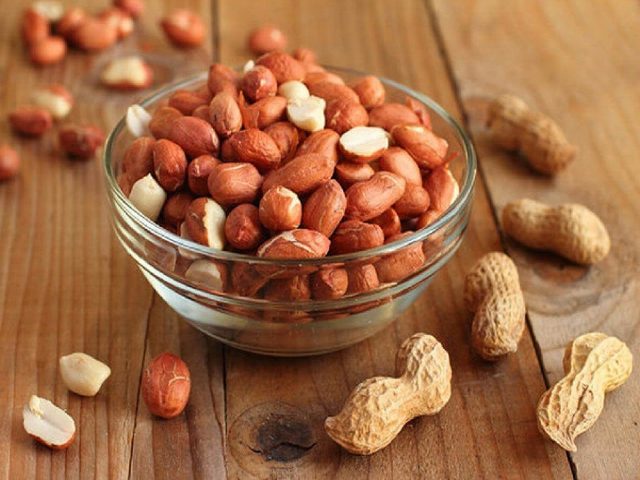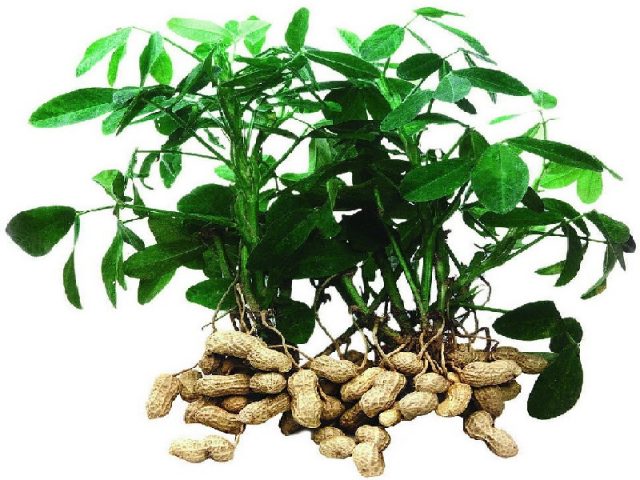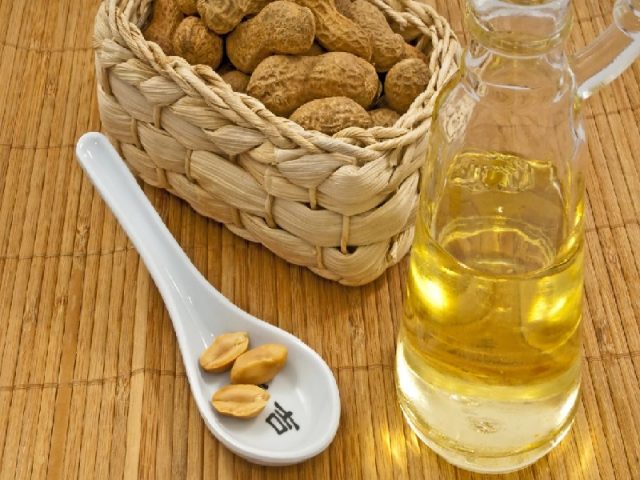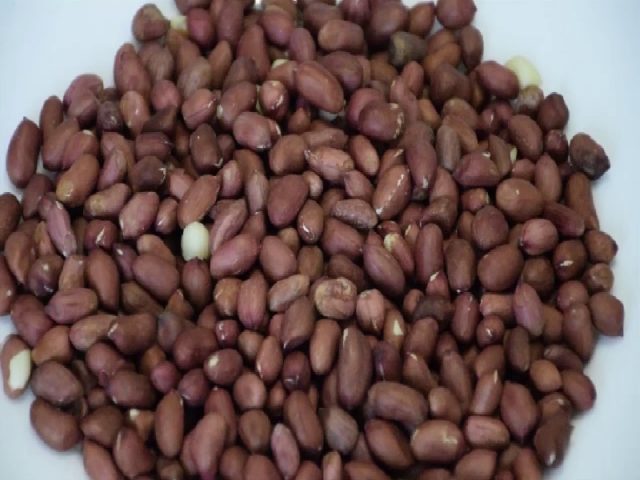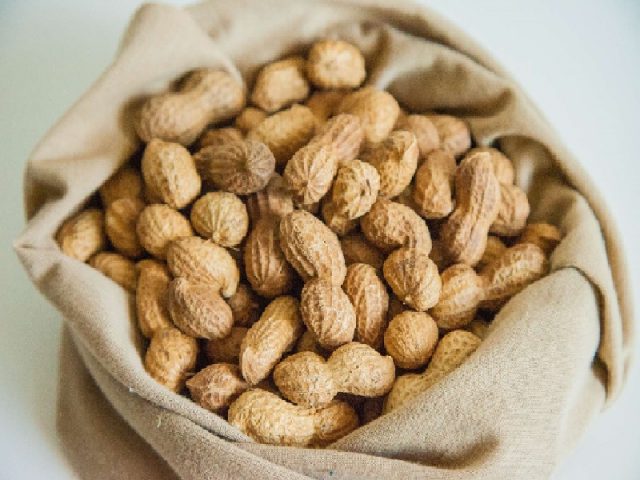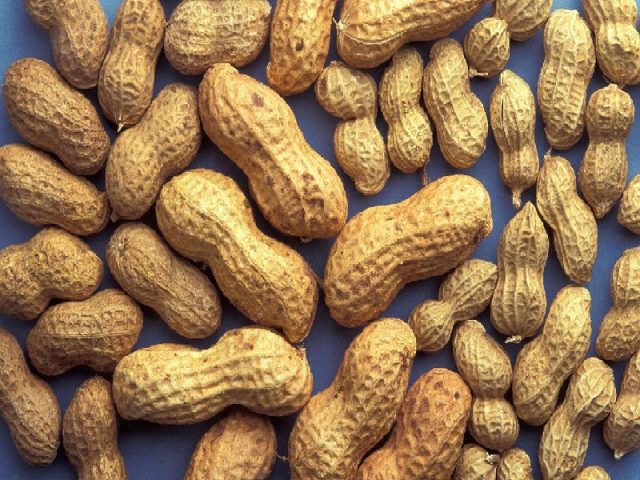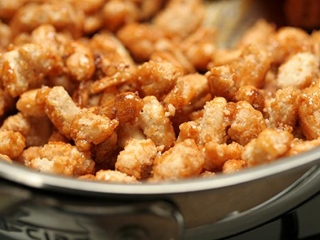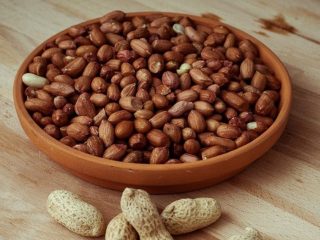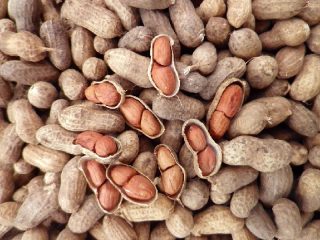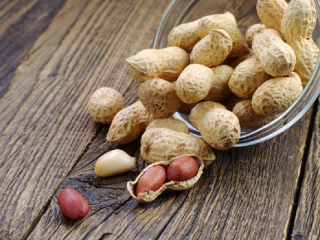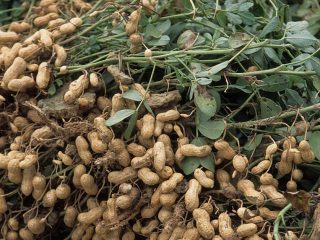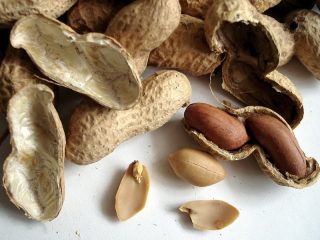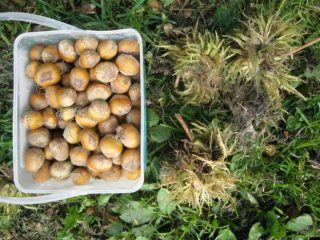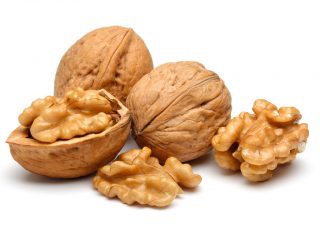Content
Raw peanuts are a tasty and nutritious product of the legume family. Many people know it as a groundnut, and accordingly, most people classify it as a variety of nuts. The structure of the fruit is rich in vitamins, minerals, and fats, but despite this, consuming the raw product requires caution and some additional knowledge.
Can I eat raw peanuts?
Since the raw food movement is relevant today, their experienced representatives can clearly answer whether it is possible to eat raw peanuts. Definitely, you cannot eat legumes directly from the garden or from the store counter. A raw nut can provoke the development of serious pathologies or exacerbation of existing ailments if it is not properly prepared for consumption.
When purchasing, preference should be given to the unprocessed product, while looking at the following nuances:
- beans are sometimes sold in a dense shell or in an open form;
- look at the condition of the peel (no cracks, damage, signs of spoilage);
- peanuts without shell have a pleasant, rich aroma;
- there should be no signs of mold under the peel.
Unshelled peanuts are a priority because they can be stored for a long time in the refrigerator.
To preserve the properties and valuable qualities of nuts, they are not recommended to be subjected to heat treatment. The logical question is how to properly consume raw peanuts; if not roasted, they are harmful, and cooked ones lose their beneficial components?
There are three delivery options:
- Raw.
- Soaked.
- Sprouted.
Simple manipulation makes the nut softer and more accessible for consumption. If the kernels are poured with water for 12 hours, the husk, which imparts bitterness, will partially come off and the fruit will open. You can also leave it for several days to germinate, which will add even more benefits to the product.
Composition of raw peanuts
Groundnuts are a storehouse of valuable elements. It contains 50% fat, up to 35% protein and 10% carbohydrates.
The vitamins that peanuts contain are presented in the table.
Vitamins | Quantity/mg/mcg |
Fat soluble | |
Tocopherol (E) | 8, 33 |
B vitamins: | |
Choline (B4) | 52, 5 |
Thiamine (B1) | 0, 64 |
Riboflavin (B2) | 0, 14 |
Pantothenic acid (B5) | 1, 77 |
Pyridoxine (B6) | 0, 35 |
Folate (B9) | 240 |
Natural Folates | 240 |
Def folates | 240 |
Рр, (В12) | 16, 23 |
Vitamin-like: | |
Betaine trimethylglycine | 0, 6 |
Niacin (B12) | 12, 07 |
The minerals contained in peanuts are presented in the table.
Macronutrients | Microelements | ||
Name | Quantity/mg | Name | Quantity/mg |
K | 705 | Fe | 4, 58 |
Ca | 92 | Mn | 1, 93 |
Na | 18 | Cu | 1, 14 |
Mg | 168 | Se | 7, 2 |
P | 376 | Zn | 3, 27 |
Also in 100 g of nuts there is up to 6.6 g of water and 2.33 g of ash, phytosterols (stigmasterol, beta sitosterol, campesterol) - 220 mg.
Benefits of raw peanuts
If the raw product is consumed correctly, it is incredibly useful:
- thanks to amino acids, calcium is fully absorbed, the nut normalizes cholesterol levels in the blood;
- useful components in the structure of legumes, stimulate the synthesis of enzymes and hormones, are involved in regeneration processes;
- The abundance of protein makes groundnuts interesting for athletes looking to build muscle;
- raw peanuts are rich in folic acid, which therefore has a beneficial effect on liver function and cell renewal;
- peanuts are an excellent means of preventing the development of cognitive age-related pathologies, as they contain nicotinic acid, which restores the membranes of nerve cells;
- in order to prevent heart disease and cancer, it is recommended to use the product as a source of vitamin E;
- magnesium, calcium, fluorine help strengthen bones, and optimal amounts of magnesium stimulate the processes of eliminating toxic compounds from the body;
- the manganese contained in the product has a positive effect on the function of the nervous system, brain activity, and normalizes fat metabolism;
- cores, when used regularly, improve mental abilities and concentration;
- legumes are recommended for use in cases of unstable psycho-emotional state and a tendency to depression - to maintain the nervous system in a normal state, you need to eat 20 nuts daily;
- Peanuts can normalize the content of tryptophan in the body, it improves sleep, mood, and promotes recovery after surgery;
- if you are prone to bleeding, it is useful to eat raw peanuts, as they increase blood clotting;
- The iron content in the product improves blood quality and eliminates anemia;
- groundnuts have a choleretic effect and also improve the quality of digestion due to fiber (in the absence of pathologies);
- thanks to methionine, liver function improves, fat accumulation is regulated, and adrenaline is produced;
- raw nut contains polyphenols, which prevent the development of atherosclerosis, cancer, myocardial and vascular diseases;
- systematic use of kernels for food has a positive effect on the functioning of the genitourinary and reproductive functions.
People who prefer this type of nut keep their skin in excellent condition longer, give it elasticity, and have beautiful, thick hair.
Harm of raw peanuts
The delicacy is difficult to digest by the digestive system. Excessive consumption of nuts that are too high in calories can cause weight gain and provoke an exacerbation of gastritis, ulcers, and diseases of the stomach and intestines. Peanuts are a highly active allergen and can be deadly for a certain category of people.
By violating the storage technology, you can provoke the formation of aflatoxins - toxic substances - in the nut. The kernels are consumed in small portions, carefully monitoring the body's reaction.
Allergy symptoms:
- attacks of nausea;
- spasms in the peritoneum;
- rashes;
- urticaria, itching;
- Quincke's edema;
- anaphylactic shock.
Raw peanuts are contraindicated for the following pathologies:
- varicose veins;
- thrombophlebitis;
- increased platelet count in the blood.
Nutritionists strongly do not recommend consuming the product during pregnancy and breastfeeding. It can negatively affect the development of the fetus and infant.
There is a category of people who cannot consume peanuts even in minimal quantities.A small amount of nuts in a cake or salad sauce can cause a serious reaction in the body and lead to death. If a person has an individual intolerance to raw peanuts and products prepared in any way, he should inform others about this. The first signs require immediate medical intervention.
How many peanuts can you eat per day?
Peanuts are nutritious and contain a lot of calories. Nutritionists recommend not to go beyond the daily intake of proteins, fats and carbohydrates. In addition, groundnuts promote rapid weight gain. The average dose was calculated by experts - 20 - 30 g per day. By eating 20 nuts as a snack, you can forget about the feeling of hunger for 2 - 3 hours. If there is strict control of calories, then it is better to reduce the recommended dose to 5 - 6 nuts.
The product can be introduced into the diet of children from the age of three with extreme caution in small portions. Parents should pay attention to any changes in the general condition of the baby.
Calorie content of raw peanuts per 100 grams
The calorie content of raw peanuts is 548 - 567 kcal/100 g in the edible part.
Calorie content of raw peeled peanuts
The energy value of a raw nut according to different sources may differ slightly, but if the product is fried, glazed, coated with chocolate, salt and spices are added, the calorie content of the legume will increase significantly.
Calorie content of raw, unshelled peanuts
The peel has no nutritional value for humans, but it retains all the beneficial substances of the nut for a long time in the refrigerator. Its presence or absence does not affect the energy value of the product.
BJU of raw peanuts
Groundnut kernels are a product that should be consumed with caution. Oversaturation can cause allergies due to the concentration of protein in the structure.
The amounts of B, F, U in peanuts are described in the table.
Proteins and amino acids | Fats | Carbohydrates | |||
Name | Quantity/g | Name | Quantity/g | Name | Quantity/g |
Irreplaceable | Saturated | Total carbohydrates | 16, 13 | ||
Arginine | 3, 09 | Myristic | 0, 03 | The low carbohydrate content provides a low glycemic index, which contributes to a smooth increase in blood glucose levels. Diabetics can eat peanuts in small quantities | |
Valin | 1, 08 | Palmitic | 5, 15 | ||
Histidine | 0, 65 | Stearic | 1, 1 | ||
Isoleucine | 0, 91 | Monounsaturated | |||
Leucine | 1, 67 | Palmitoleic | 0, 01 | ||
Lysine | 0, 93 | Oleic | 23, 76 | ||
Methionine | 0, 32 | Gadoleic | 0, 66 | ||
Methionine+cysteine | 0, 65 | Polyunsaturated | |||
Threonine | 0, 88 | Linoleic | 15, 56 | ||
Tryptophan | 0, 25 | Raw peanuts are quite fatty. It is grown as an oilseed crop and used to produce peanut butter. | |||
Phenylalanine | 1, 34 | ||||
Phenylalanine+tyrazine | 2, 39 | ||||
Replaceable | |||||
Aspartic | 3, 15 | ||||
Glycine | 1, 55 | ||||
Glutamic acid | 5, 39 | ||||
Proline | 1, 14 | ||||
Serin | 1, 27 | ||||
Tyrosine | 1, 05 | ||||
Cysteine | 0, 33 | ||||
If the digestive organs are not affected by pathological foci, peanuts are recommended to be consumed raw. The natural, unprocessed kernel contains a large number of enzymes that help to fully digest food and absorb nutrients into the walls. Since groundnuts are heavy on the stomach, they must be crushed before use.
Terms and conditions of storage
Although raw peanuts are a legume, they, like nuts, release fat when stored for long periods of time. Over time, the oil begins to become bitter and emit an unpleasant odor, which indicates the functioning of the fungus.This product is unsuitable for consumption and, if it enters the digestive system, can cause poisoning.
At home, raw peanuts are stored as follows:
- storage containers must be clean and dry (not made of plastic);
- when stored in fabric bags, the shelf life of raw peanuts is reduced;
- before scattering peanuts into containers, they are sorted out, any remaining husks and debris are removed to prevent the growth of mold;
- if raw peanuts have changed their appearance, an unpleasant odor and coating have appeared - the nuts are no longer suitable for food;
- if the nuts have not changed in appearance, but the taste is clearly bitter, the raw peanuts have deteriorated and are no longer edible;
- before putting the container with the product into the pantry, raw peanuts in the shell or shelled, it is worth heating in the oven for about 10 minutes at 50 degrees;
- Before distributing into glass jars, the containers must be sterilized.
Having created optimal conditions, peanuts in the shell are stored for a year. If the shell is removed, without access to light in a cool place, the kernel retains its properties and taste for up to 9 months. If you place legumes in the freezer, the fruits can be consumed for up to 9 months, in the refrigerator - up to 4.
Packaged raw peanuts are stored for as long as stated on the packaging by the manufacturer.
Conclusion
Raw peanuts are available for sale all year round. It is cheaper than exotic nuts, but is not inferior to them in taste and nutritional value. The product is well preserved and, if chosen and consumed correctly, provides mainly only benefits. As with consuming nuts, legumes and other foods, you should know in moderation in everything.
